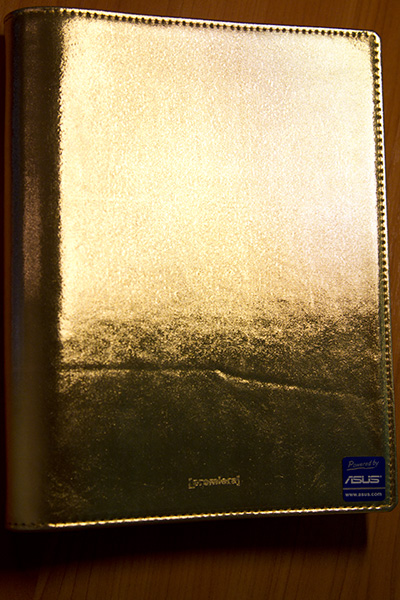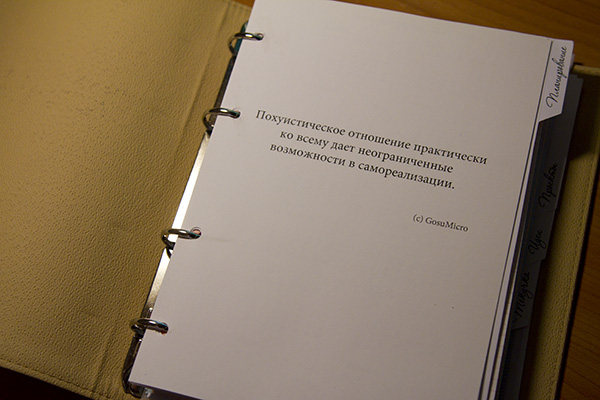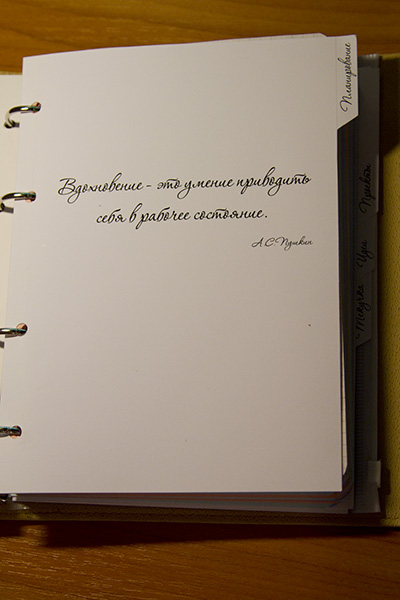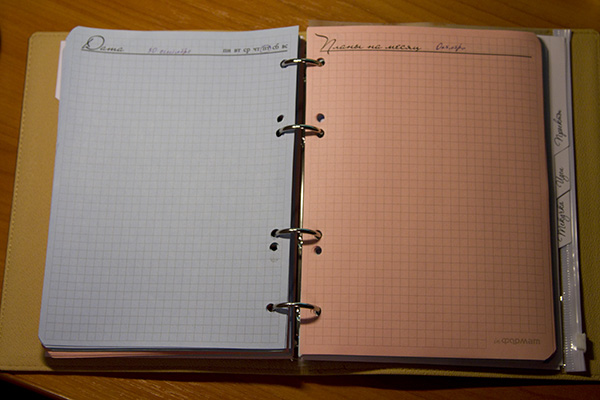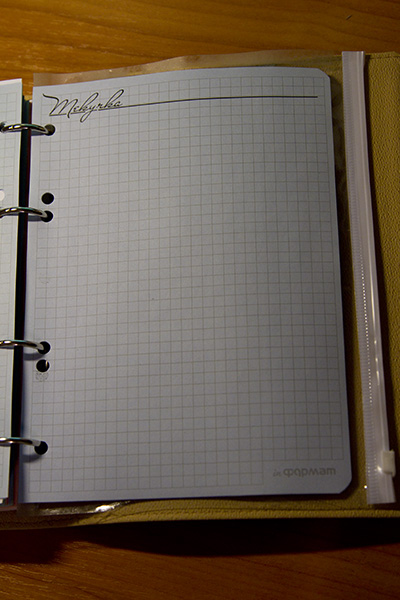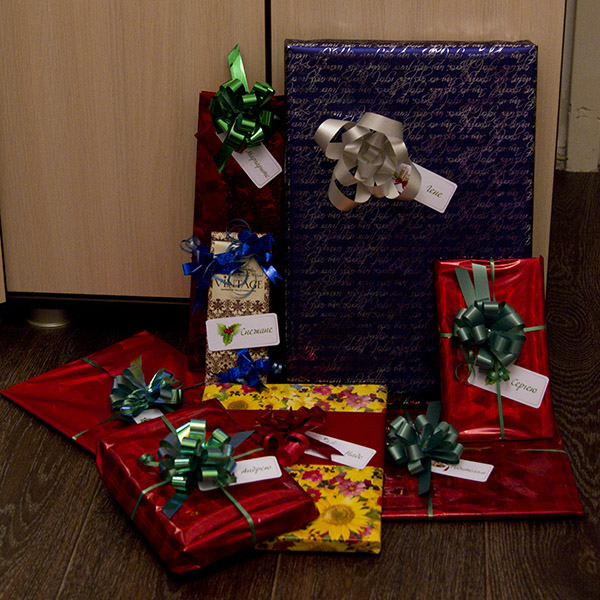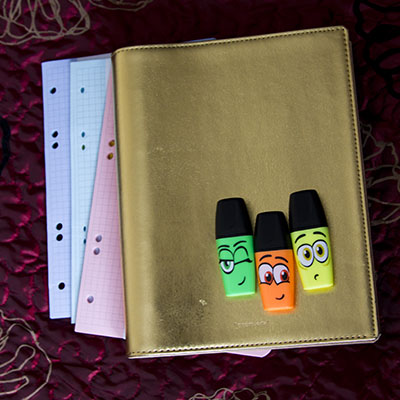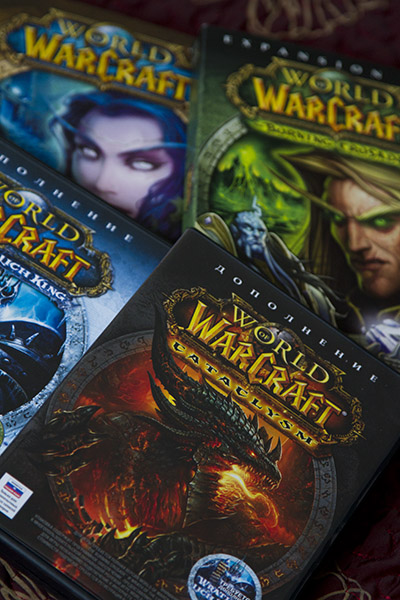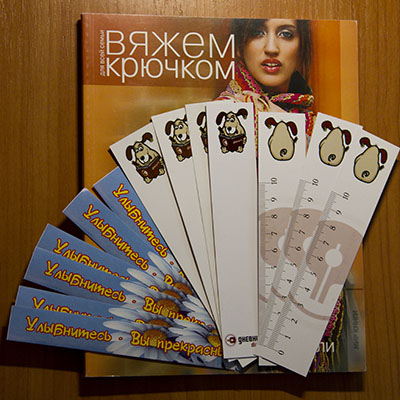виртуальный приключенец
Собственно, текст.Technology is like a mirror. If an idiot looks in, you can't expect an apostle to look out. It's, it's... I remember when I first saw some Photoshop, the very first version of it called Pixel, in fact a very early version, and I saw some things it could do, and I couldn't wait to put it on to floppy disks into my computer and I raised my fingers and I thought: "Oh, I don't have any artistic talent. Ha-ha-ha... what's the point?"
It's like if you get a great keyboard, but you got nothing to express musically it doesn't matter how good midi is and how many synthesized sampled instruments you have, it facilitates it.
The great thing about social networking, which at the time we're talking of course is still growing in what seems an exponential rate all the time upper curve of it is that everybody has a talent to interact with other people short of being on autistic spectrum of course, which is something many people are in very small ways or in greater ways. And even that could be helped by the interactions off the internet. And I think, forgetting the technology, forgetting what your device can do, forgetting how good the camera is or anything like that, the most successful usage you can make of for example Twitter or Facebook or any of those social networking services are completely down to your personality, absolutely to do with who you are.
I think, particularly in America, it's common more across the World there is this yearning for people to find answers to techniques that will make them happy or rich. In fact probably the other order: rich and then happy, because of course richness gives happiness, doesn't it? Hm...
Well, to me... if I had known when I was younger, chasing technique, chasing an answer is fatal. And I would say this, and many people will scream in disbelief, the worst thing you can ever do in your life is set yourself goals. I think goal orientation is absolutely disastrous in life. Two things happen: one — you don't meet your goals, you call yourself a failure. Secondly — you meet your goal, you go: "Well, I'm here, and now what? I'm not happy. I've got this car, this job, I'm living in this address, which I always thought the place I wanted to be, and... what?" Because you're going for something outside yourself, and that's no good.
My favorite quotation almost (or at least for the moment) is from Noel Coward who's very great actor, producer, writer, musician, he is all around, he is known as the Master by everyone who knew, because he is so good in everything and he said: "Work is more fun than fun." And if I have known that real joy in life is work, and if you can say of the work you do that it's more fun than fun, then you're in the right place.
Most of us of course don't have that all the time, but every time you look in the bathroom mirror in the morning, if you can say: "Is my work — more fun than fun? Or is it dreddy water, is it getting me to a wage package, which allows me to go to bars, and buy things." If that's it, then that's bit of a treadmill I think. And everyone has in them to express themselves that fundamental thing that they know they are inside that rather beautiful afraid person, which might get translated into aggression or silence or shines or all kinds of other things, but inside we know we are huggable, lovable, we want to love and be loved. That person is yearning for fulfillment to be the person they know they can be. And that's a constant journey, a process.
It's not about acquiring this thing, and then that thing, getting to this place, learning this technique, finding out how this works. It's about, I suppose to me it's about the fact that other people are always more interesting than oneself. And if there is a thing... Let's forget what successful people have in common, but if there is a thing what unsuccessful people have in common - it's: they talk about themselves all the time. "I need to do this. I need..." — the first two words are usually "I need", and that's why nobody likes them, and that's why they'll never get where they want to be. Because it's "I need, I, me, I, my..." — there is an English word for that: egocentric or egoistical or egotistical.
That all of it from "ego" that I think of an "I"... and if you just say "I" all the time, you'll get nowhere. If you interested in other people, if you use your eyes to look out, not to be looked into, and then you connect, then you're interesting, then people want to be around you, and it's about the warmth and the charm you can radiate that is real because of your positive interest in others and if you expected to come to you "I've never had this" or "I was..." you know, you hate people...
You know I happened to love... I know a lot of people don't. But I happened to love the works of William Shakespeare, the poet and playwriter, I think they are amongst the greatest things humanity has ever done. Up there, with the Pyramids, or whatever it is you want to choose. You know the number of times you hear people say "Oh, it was ruined for me at school" and I, I tend to say to them "Yeah, I don't really like the Grand Canyon, or the Lake District, or the Mountains Of Scotland because I’ve had really bad Geography teacher so I don't find either of it very beautiful" I mean just non-sensical. You just.. It's a sign of people stopping back and blaming something else rather than just saying "Oh, I wasn't ready for that, maybe I never will be, but I'm not gonna blame someone else for it".
It's.. It's attitude of looking in wounds and American television is filled with people sitting in chairs on it's sort of afternoon talk-shows going "I need"-whining, whining about their lives. "I'm beautiful, I'm lovely and yet nobody... You know, I'm special, I have needs..." Oh! Shut up, stop whining. Just grow up and get a life, and look around you to other people, and don't expect other people to care, don't expect people to be interested.
Who, who'd you feel more sorryful, who'd you actually want to hug? The person you happen to know has a tumor and he just getting through life not talking about it, smiling, trying not to embarrass anybody about it, or that kind of person "I have a leg that hurt, that one.. and I have this pain here, and doctors don't know what to do about it, and I get these flashes.." Oh, Christ, I'm sure it's terrible for you, dear, but shut up! You just don't... No, of course, we do our best to feel sorry for all kinds of people or we show sympathy, but the real heroism of people who quietly get on with their lives and think of others should be ruled and usually is by the fact they are liked and if you like people want to be with you, people want to be with you, they show opportunities with you, and you observe the way they do things and your life can open up, and there are opportunities everywhere, whether it is a small town or a tiny apartment in the huge city - there are opportunities.
You know, you can simply by talking more to the person in a coffee shop, in a coffee store, in your Starbucks or whatever, simply by just having a few extra words... they are probably doing a concert somewhere, in a little bar in the evening and you might go along and you meet there, and they need someone else and you might, you might… who knows... that's how some people become managers or musicians. They go out and they find talent, they look at it in other people.
So that really to me... if life has any secret it's... it's abnegation of self, efface yourself, don't talk, just don't say, if you can't stop saying "me" or "I" too often you are on the wrong track. I think in the same way you turn in yourself it is very negative and sort of... destructive to finding opportunity simply staying in the same place and knowing what you know all the time I once wanted to open a restaurant where you always get the dish that the person next to you have ordered because that is the one you wish you had. And I always thought this thing like Netflix they should send you a DVD the exact opposite to the kind that you like, last the way you look. So the Amazon said “I see you liked this novel by this novelist why not try this...”
And you “Yeah, but this completely...” Yes, that is the point, it is completely different, it is not your usual thing. You know how we always buy, you know how your partner always says "why are you buying that shirt, you got one that exactly like it", you say "it is not exactly like it, it has slightly different color". We like that in life, we tend to settle so quicklyand the best way to stop that to keep reinventing oneself, I think travel is a fantastic way, that has never been easier, there are ways now, I think, a lot of us try to be responsible in our travel because, of course, you know, what we do to the environment by travelling, but there are ways of sharing travel, travelling with other people, especially amongst the young, they travel around the world, they share books.
This thing I only discovered a few years ago, this is very common in the places where young people travel a lot, like, say, in Inca Trail in Peru or in the South East Asia, you know. People just leave a book, and they leave the name on it and a little note, they just leave it in a public place, anywhere, and someone picks it up and say “Oh, that is good”, and they read the last note, they read, and then they leave it. These books have a magical history, going round. Travel and reading to me are such extraordinary pleasures I couldn't conceive a life without them. They constantly teach you. And they don't just teach you about the rest of the world, they teach you about where you come from. There was this saying... I think, that was Kipling who said it: "What do they of England know, that only England know?" And what do you know about your own country if your own country is the only country you know? You don't know America unless you've travelled outside and you see... And then you think: "Oh! Gosh, we do things differently, I didn't know!" "I thought the way we did it was the only natural and normal, but they do it completely differently!" You learn so much about your own country by travelling. Also, I think, to me, the people I was in the head most..[].
I've had heroes. I'm sort of shameless about the fact that you admire other people. If there is a phrase that makes my heart sink, that's - "Not impressed". People just say: "Yeah, it's so... I'm not impressed." As if, well... who cares with your "impressed"? It's such a vain thing to say. If your standards are so high that you need to be impressed, "to impress me you've got to be damn good", I mean, there are things we don't like, there are things we think of as substandard or ordinary which we can turn away from But it's wonderful - the rush, the headlong of something with enthusiasm, like a puppy for things you admire and people you admire. Sometimes they'll disappoint you, some great singer or some fabulous painter or writer may turn out to have a pretty horrifying private life or do unpleasant things to animals or whatever, but to admire is enormously helpful.
I think because it's one of the most natural things. And mentoring is, of course at the heart of these most natural things is to sit at the feet of a master and to learn, you know, you see it in all cultures. In the Eastern cultures you see a particular image of the, you know, like a kung-fu or something, you know, with a grasshopper sitting at the feet of his Shaolin priest, teaching him so many things about mind and spirit and body and so on but also if you wish to learn, say, the guitar, if not exactly a master then is usually a friend and they hand you, like, "Put your finger like that, play that, and then play that in that rhythm, and then it's time for the change, and then that one, eh?" and then you play awhile and say: "Wow! I found a new chord, and look at this, and oh, it's very good". And slowly you're learning the guitar and the time may come when you know enough chords "I should take a book or a video or take proper lessons" - if you wanted proper lessons in that way, but you're learning with friends, you're showing each other, you're learning together.
And that's really what education is. To me if I was go back to me after I got in university and there were some splendid professors there, magnificent, world-renowned people. And they were charming to talk to and they knew a lot of things. But all the learning I really did was sitting with coffee in a room with friends talking about everything - cosmos, and God, and Marxism, and history, and psychology, and truth, and lies, and honesty - all the things that seemed very pretentious later on, they seemed a bit over-earnest, perhaps. But you may [] with your friends, you learn of each other, you take pleasure, like, say, "Have you seen this new chord?" and some new ideas you've picked up. So, again, - learning is all about other people.
It's not about yourself with your head in a book. I mean there are things you can learn of course, i.e. dummies' guides and serious instructional works, but I don't think that many people I know who've mastered anything have done so from that. They've done it through their interaction with others. I would say that probably one of the most wonderful things you can be given in life is the ability to give. Sometimes, because I've had a lucky life, I have an opportunity to give something, whatever, it was time or money or whether it might be, or presentation, or speech, or something, [and people say... which I guess is ...] Which would you rather be? Would you rather be someone who asked for help or money or would you rather be someone who is in the position to give it? So obvious, which it is. No one wants to ask, everyone wants to give. And it's astonishes me when I do meet people in my profession who are closed to turning up to anything. I mean I can understand somebody who wish to guard their privacy and they don't want to be on a red carpet just because it is a charity event but there are so many ways you can use any accumulated wealth or reputation or influence you may or may not have, that are helpful for other people!
And that's just most natural and wonderful thing to pass it on. Almost everything that I do, I sort of aim at my 14-15-year-old self. I had a very troubled childhood - it ended up with me going to prison. I still want to talk to that young me, I still want to do things for him. And this is the book I would like him to have read when he was 16 - so the thing I write. Not that I hope that my books are preachy or teachy. But I just think - sharing the benefits of life *is* the benefit of life, oddly enough. I think probably everybody watching me now has more power, in any real sense, in which power matters, than, say, Louis the XIV or Napoleon without the power of life and of death, which is probably what we don't want, so it is quite good just in times when Napoleon wanted to know something even he had to send some people out to Egypt and bring him back stones or something and scholars will gather and talk about it and similarly, if he wanted the spice, he'd ships go away and come back and we could go to a store in a corner of the street where the bounty of all five continents is heaped up in ways that never been known.
We have access to everything. And most importantly, to information, to knowledge. But is it knowledge? And where does it come from? How can we trust it? And is knowledge the same thing as truth? Is knowing that the Spanish Armada attacked Britain in 1588, actually knowledge, or is it simply, in today's technology terms, a sort of piece of metadata that just flagged in history? It's really no more than that. Without knowing what that means - 1588, Armada - it's pointless - or 1776, or whatever date you choose. And for me, I think, the history of the world that has arrived to this point where I can speak and it can be watched by people in all kinds of ways and with all kinds of devices, and can stay for eternity, [rest you on service] and who knows where [the whole things] - it all comes from inquiry, it all comes from open inquiry.
And the word really is "empiricism," which is a strange word, but what it means is testing things. You don't take anything on trust. You test it out. If a book says, like: "You shall have no foreskin," or "You must not eat shellfish," you can choose to say: "This is the Word of the Divine Being," if you like. It doesn't really get you very much forward, but it can connect you to the history of your people. I'm not here to disrespect that. Those happen to be a lot of that for my people, as it happens in -- I don't know -- [] that I have no choice and I eat sea food... whatever. But for the rest, I need to know why is that, why somebody's telling me what is the case. I need to question it and to test it. Authority comes from the validity of information, being repeatable, being open, being free, and not coming with a threat, and not being just told: "This is the case, and you must believe it - or you die." which is, as we know, probably the biggest problem facing the world, the people who says things like that. And unfortunately, it's the young they appeal to.
You're unlikely to find a 50-year-old being converted to a fundamentalist belief in something which means that they think people should die for, not believing the right thing, or using casual language about their divinity, or whatever. You won't find a 50-year-old who - you may find one who's grown up, but try to persuade a 50-year-old. They just know the world too well, they'll go "oh, come on!". But unfortunately, a 18-year-old, who's lost, or feels that the world is unjust - he's right, you know, it *is* unjust - it might be better, if we all ordered and well-behaved. It might be!
But we know that "ordered" is a dangerous word. And the riotous, chaotic freedom we enjoy, which causes so much of a headache for all of us, is infinitely better than rigidity of tyranny and control. And religious fundamentalism is just another kind of fascism, it's another kind of communism, it's an extreme, dictatorial way of telling people how to behave. And given that my power comes from a book, whether it's Karl Marx or it's a holy text - that's, to me, the dangerous thing. The truth is [bully] and complicated and difficult and all but an [ "oooh, huh..."] I trust people, you know, the great, one of the wisest heads who ever lived on this planet was a philosopher called Socrates, and he's famous for asking questions he never gave answers but the questions are so acute; the innocence of a Socratic question: "I wonder what we mean by that." You know? and even down to, you know, ethics at what age might it be right ever to abort a foetus, on what age? if you did it on Wednesday, it would be child-killing if its on the Tuesday before, it's okay, how can that be? You know, these things are very complicated, and never stop thinking like that! Never stop being a child, who says "Why? Can that be right?"
There's Zeno, one of my favourite philosophers, had a pupil next to him and he gave him a bean and said to put it on the table in front of him and said "Is that a heap?" And the pupil said - "No!" So he added another one, "Is that a heap?" Pupil said "No, it's not." He kept adding and eventually pupil said - "that's a heap" So then he says, oh, then the heap is 17, I take this away, it's not heap anymore. Is a heap 17? And he was making that exact point "Oh, I see, this number of days is a life, take one away, it's just a mass of chemicals" Life is full of these complexities, like age of consent is a similar one, you know? the police enter a room and there's a couple making love and if they entered the day before it would be statutory rape but because it was the day after the birthday - it wasn't now, it's such a peculiar way to order a society like that and I think that sort of flexibility, of being able to to think openly about all kinds of problems is really important for one's happiness and one's sense of self and connection with other people.
I think, one of the interesting things about social networking is what it's doing to democracy and how it is reactivating many sides of democracy that both internationally, when there is, you know it's not necessarily changing the world in one fell swoop but I think politicians have to be so much more careful now, because what they say is not just in the hands of journalists who, after all, trade favours with them and may will let this one off for saying this but we're all citizen journalists to some extent by blogging or microblogging which is what Twitter is and I think it allows us to engage more in politics and I think in young people there of course still is same level of cynicism which is a perfectly justified level to some extent who call it realism more than cynicism ??? the human beings in these positions of power and you can take silly, sort of conspiracy theory view, be paranoid about it and all, but actually, we know, because we were at school with some people who are now politicians of my age running the country, and we know how stupid they are we know how stupid we are! And the idea that they are clever enough to conspire in some brilliant way to, you know, with heads of business to keep secrets... they can't keep what they do in their trousers a secret, the idea that they can keep anything serious a secret is absurd!
And I think they have to be so much more honest now... openness. I think there's one thing that can really transform our lives it is increasing levels of openness it is really allowing transparency in the way people behave and transact in business and in politics at all levels and I think it's all to the good, I really do and I think the fact that it's harder to be private is something, of course, that we juggle all the time if all this openness is around, it's like we're all living in glass houses with no curtains and maybe people feel a bit exposed by participating in the openness of the world but in ten years time almost everything we do will be so locked in to electronic systems and it already is to a huge extent and even more so. I mean, just including the way we thought and so much information will be known about us and we have to just make sure and I think that's the beauty in it, there's lots of guardians for us out there who do make a fuss when liberty is threatened.
The world is full and the history of the world is full of stories of people who feel out of place in some way either in their family or in their community that they just feel that the stork dropped them down the wrong chimney and, I mean, a very common one, like me, is - I'm gay so, especially when I was growing up, it was pretty difficult to be open about being gay there were very few people in public life that were known openly gay but they were somewhat openly camp and it was a sort of an open secret But that's not what being gay is about. Flouncing around in purple dresses isn't exactly the whole gay experience. But also, there may be people who are born football player. Who grow up in a family of musicians or belly dancers. It's not all just bright sensitive artistic people throttled by the commonplace philistinism of their parents. It can be quite the reverse, you can just want to be ordinary decent citizen who plays sport and isn't interested in all things that your parents are.
You feel kind of trapped. Most of us feel different, I think. Teenagers in particular, but almost all life-uncertain people. There is this tension: on the one hand, you want to belong, you want to be a part of the tribe. You want to be enclosed in a community and feel the friendship and all the fellowship of being connected. And another part: one wants to stand alone, and be an individual who is utterly different from everyone else. "They are the tribe -- they are the muddy philistines, and I'm the artistic sensitive soul." See, you want to be a part of the tribe, but you want to be apart from the tribe. And it's that pull that I think gives enormous creative tension, that allows people... It's that spark of electricity, if you like, that makes people creative. It's the desire to be absolutely unique but also a desire to belong. [That sense of...] so they understand other people, what is to be a part of the community. But they also understand the status of an alien and an outsider.
And youth cultures that old people stupidly mock, 'cause they say: "Oh, you're trying to be different, but you're all just the same!" Oh-ho-ho-ho. You just don't get it, you know, that's not the point! They really do [here] [outsider] ['cause they think they're being] clever! "Ha! You all wear the same... rings and gothic... whatevers, and now you say you just want to be different - well, you're not!" No, it's not this. What they are doing - as I've described, they are belonging, but they're outside. And it's that paradox [??] that counterflow that I think makes life exciting and gives them [the rosin that our ballet shoes can grip the state with], if you like.
That's a strange metaphor, I don't know where it came from, but you know what I mean. I think, a very good point about technology is - yes, it connects you to people who may be as rare as you are. Gives you a connection used to be - for example, if you liked a particular writer, or particular comic, you would have to go to the nearest big town where may be one specialist store where you would hang around for a fat comic guy would come out, like, "Whaat are you peeople dooiing?", and you would say, "How much is that comic?" and you meet other collectors, but then you had to go thirty miles out of town, [by home of your smaller town], and you'd feel disconnected.
Now, of course, you're constantly locked with conversations with your fellow collectors and it could go down to the minutest form of specialization, but it still could be three hundred people on the planet who have that, and they can now be connected to each other. Which must be very exciting. On the other hand, I suppose, if you've grown up with the Internet, as we now have of course - people in their twenties who've known nothing but the World Wide Web - almost twenty years old, I mean - so that is a heck of a thought, isn't it? And maybe they are not so surprised, they just pick out that is natural, that have fellow interests, Collect! And that's a miracle! It's a wonderful thing! Of course, yes, against that there's a privacy issue and everything else, but as long as... there are dark sides in the Internet - i mean, obviously - it's not just the manifest [?] once to do with terrible pornography or whatever, but there's real problems that come back to the personality disorders, if you like, of those who are obsessed with self.
Either if I see a YouTube film or read a blog, my eyes go below to the bottom of the screen. Because I get so fantastically upset by people who write comments... I don't even know anybody who writes comments! I think that's the point! The kind of people who put comments are themselves so weird and unhappy and alone and strange - it's called 'trolling', you know, vicious comments about things. I mean, really weird. Either politically weird or religiously weird or just so intolerant or so desperate to be heard! So offensive! Just pleading: "Please listen to meee!" - they're saying all the time. "Listen to me!" And of course you don't want to, and if you do, it just gets upset - you might even be tricked into replying with an aggressive reply to some idiot, and with vile opinions about things. which they will use on a copmlete... it might be a puppy running around... Some random youtube thing, and it somehow manages to get a thread of nastiness into it. and they just want to be heard, and they are so resentful, and so annoyed, especially due to other people's blogs the fact that somebody's reading someone else's blog and not theirs - is madly enough!
And they may be like someone they hate. And this even happens in technology - if you write "Oh, I saw my friend the other day" [?] [] like, two pages of anti-Apple madness - talk about 'get a life'! But that all comes down to the same problem - these are self-obsessed people. And because they are self-obsessed, they just [] build up these poisons, build up inside them, they have to get out. Maybe it's better that they get out in the common pages of the Internet, than in violence on the streets, but it's still distressing for us all to see.
I suppose the thing that I most would like to have known or to be re-assured about is that in the world what counts more than talent, that counts more than energy or concentration, or commitment, or anything else, is kindness.
And the more in the world you encounter kindness and cheerfulness (which is its' kind of amiable uncle, or aunt) the better world always is.
And all the big words: [], justice, truth -- are dwarfed by the greatness of kindness.
@темы: фанатское, stephen fry



 Найти бы от чего оттолкнуться хоть
Найти бы от чего оттолкнуться хоть 